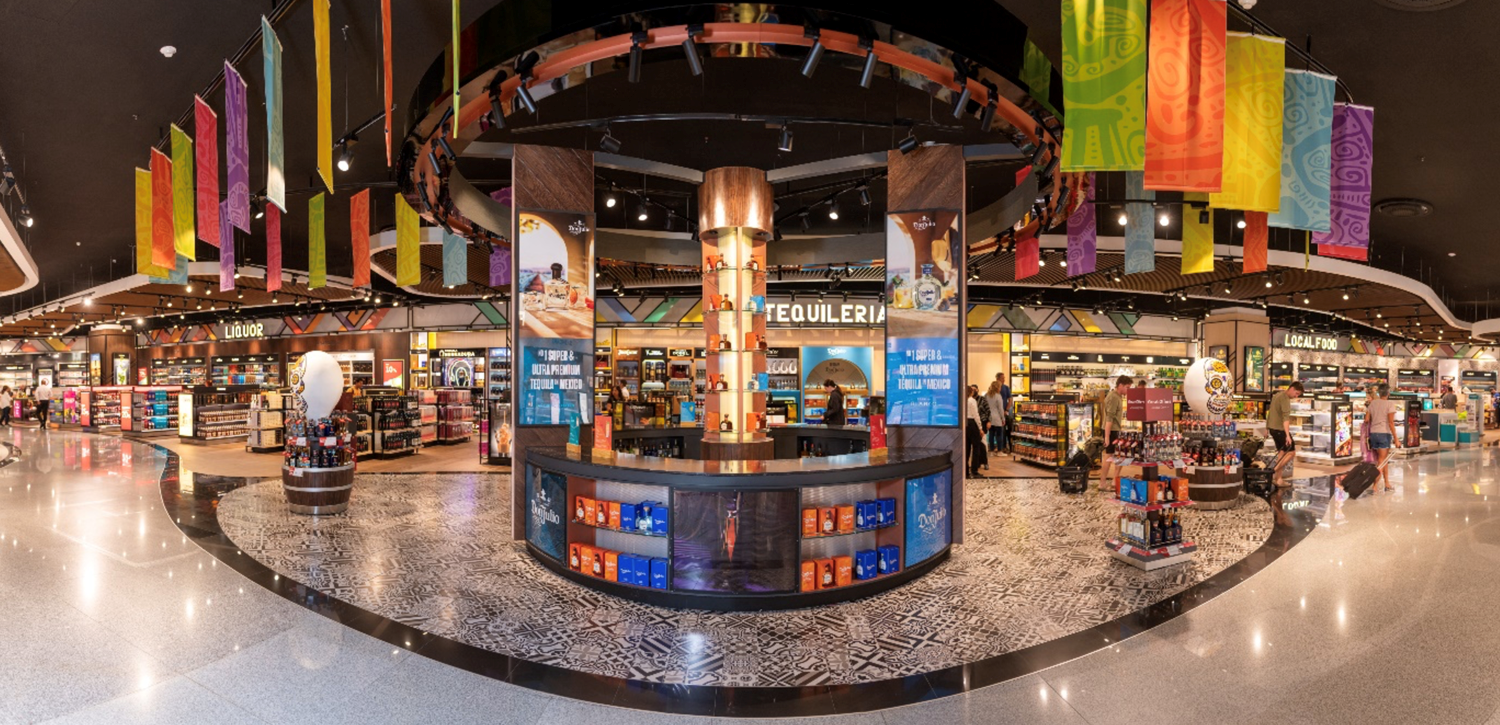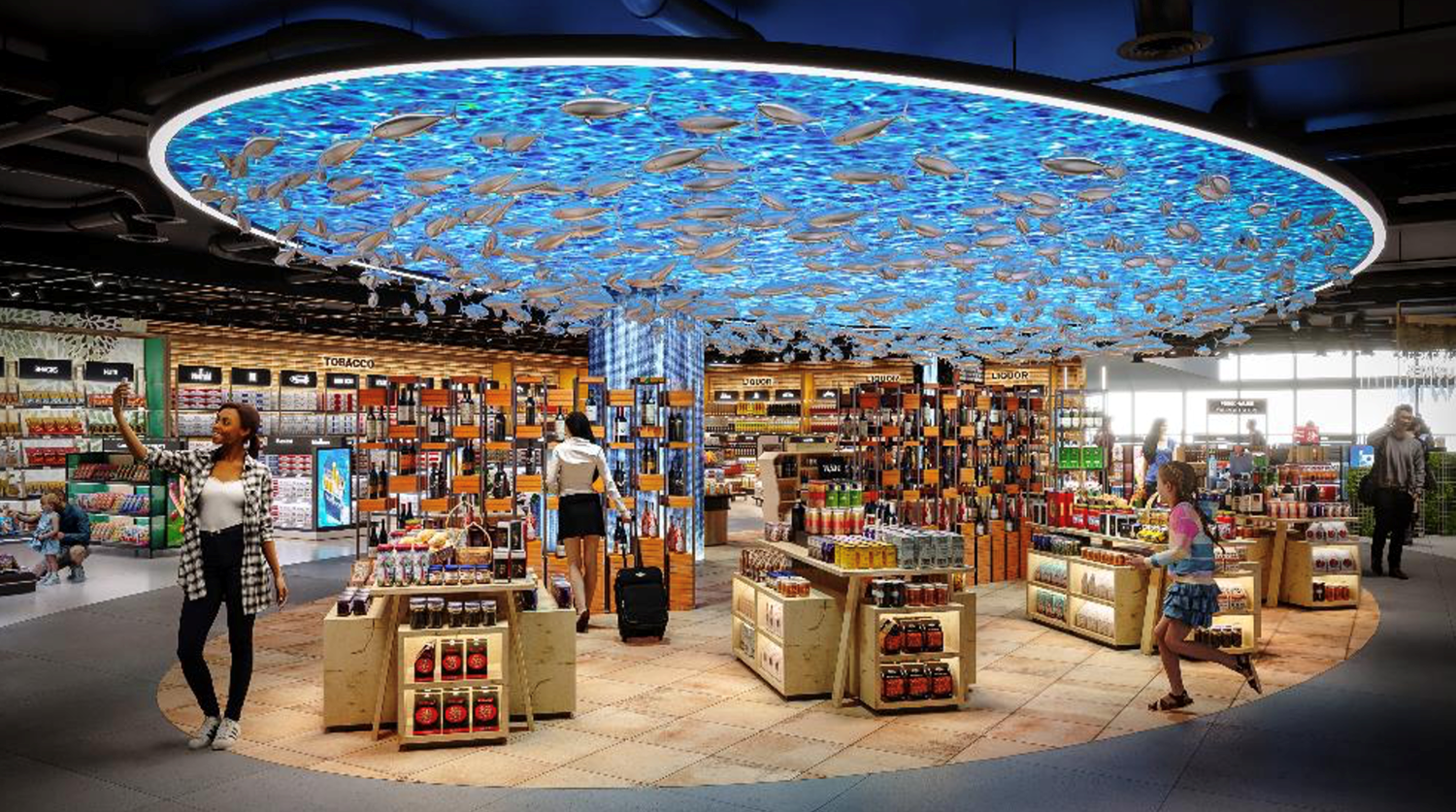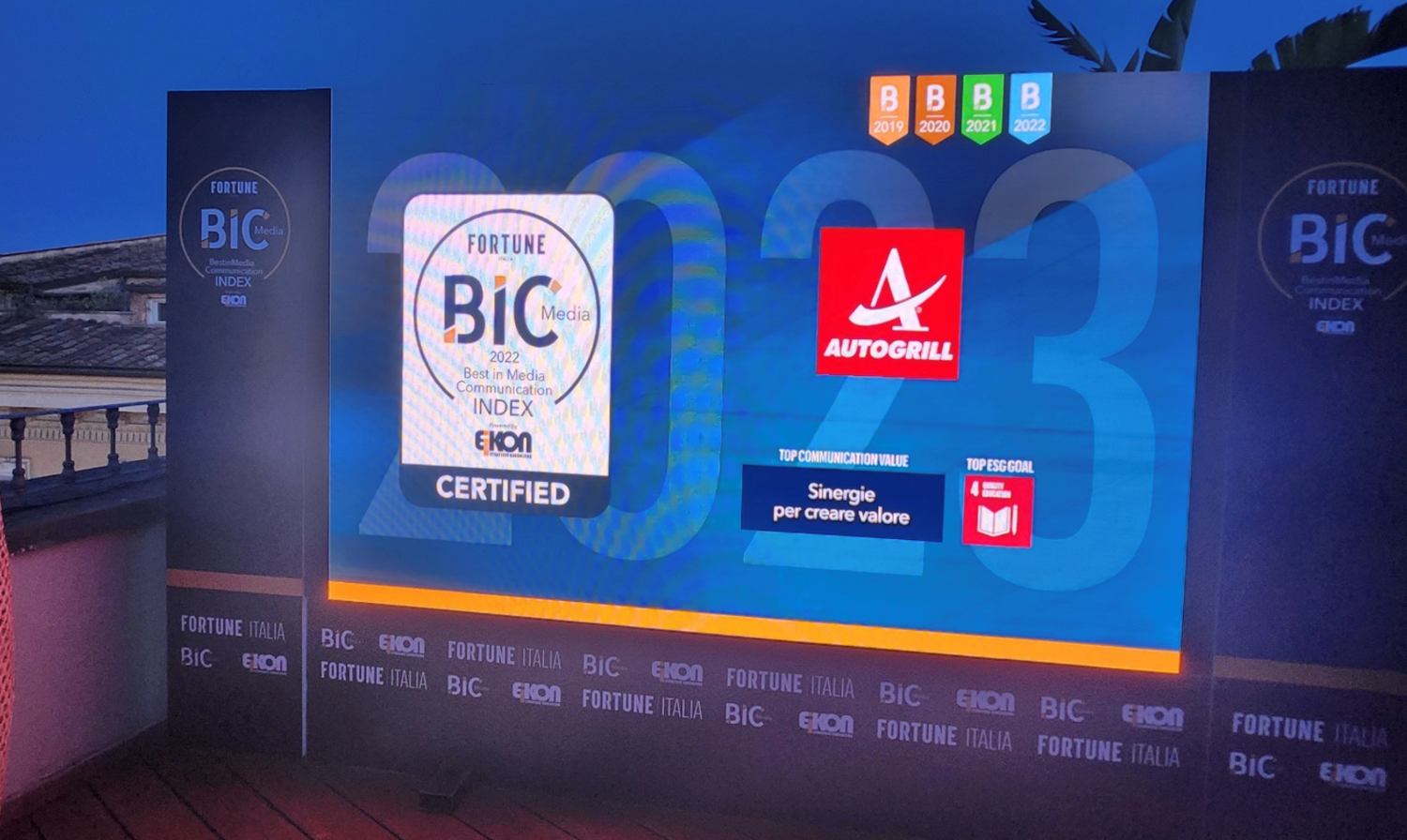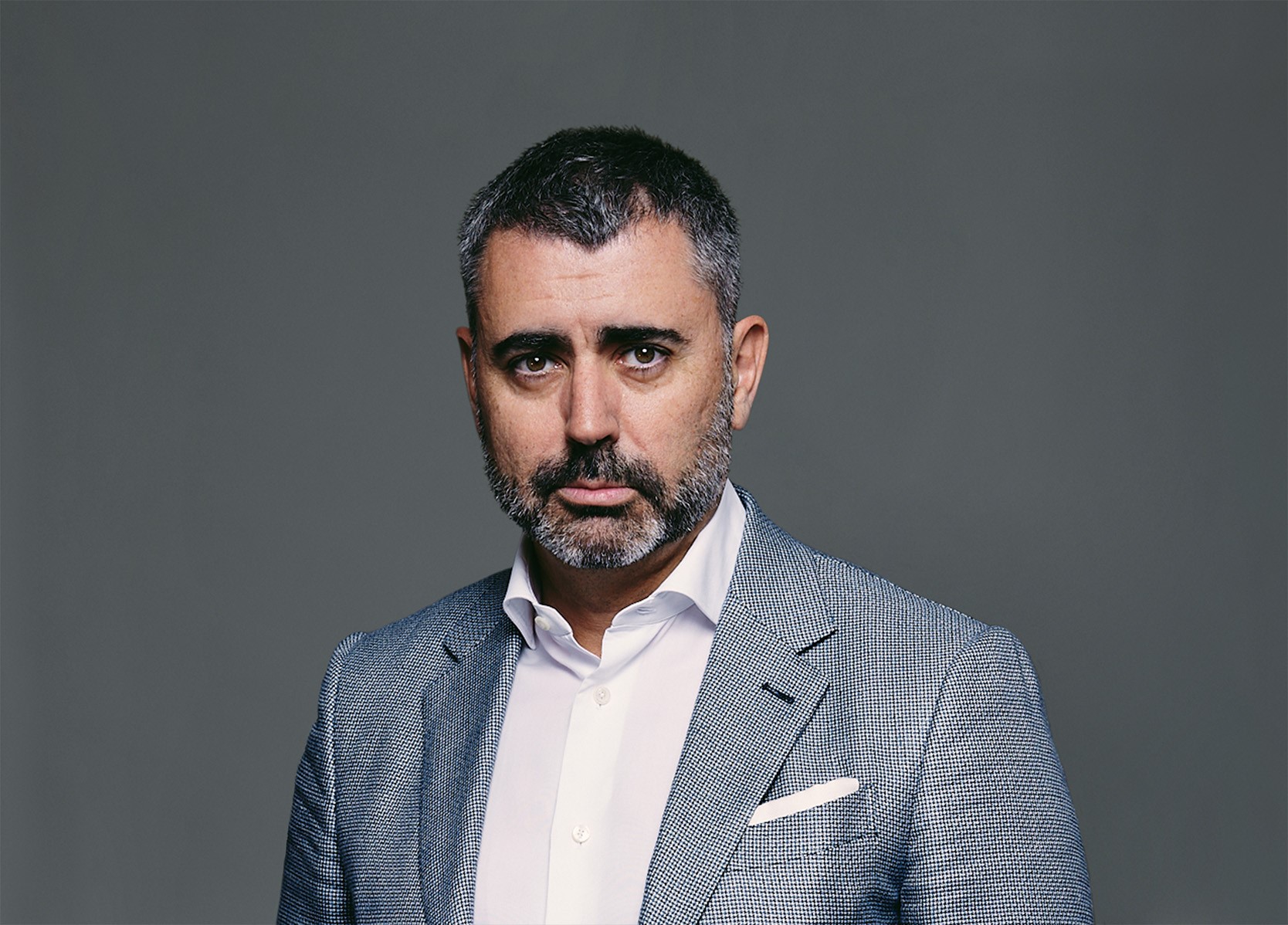Issue 32 - September 2019
Calling Mr. Brand
If travel retail was a country, Nigel would be one of its most prominent citizens! Working in the retail industry since the end of the 1980s, he has experience of working in operations, merchandising and procurement. Nigel moved to Dufry in Switzerland in 2006 as Procurement Director. Today he is Dufry’s Global Commercial Director. The recent creation of Dufry’s Commercial Platforms, which herald a new way of working in our company, together with his recent appointment as President of the European Travel Retail Confederation (ETRC), is bringing more excitement to Nigel’s (professional) life.
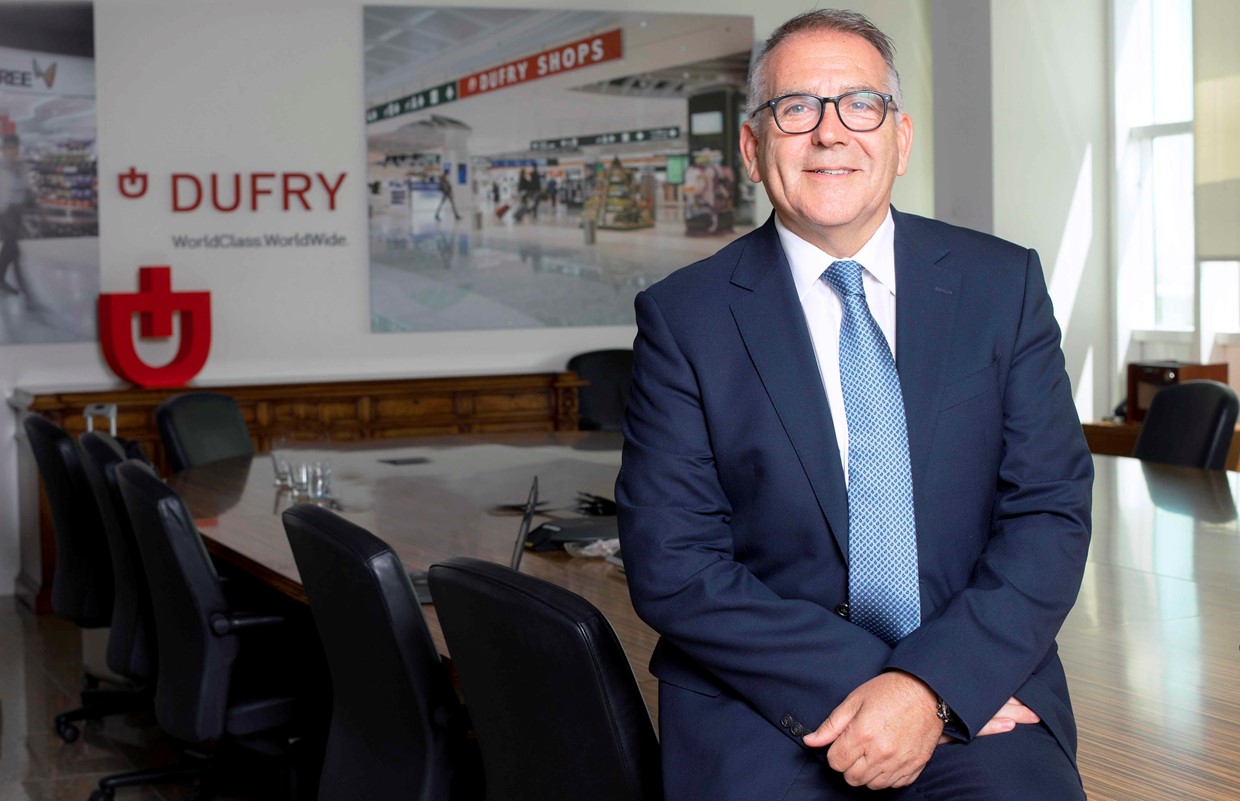)
The key story in this issue of Dufry World talks about Commercial Platforms as a new way of working that Dufry is adopting. Can you please explain what these platforms are and how they work?
In a single sentence, the Commercial Platforms enable increased agility and bring the teams closer to the business.
Four Commercial Platforms have been set up, one in Europe, one in the UK, an APAC platform (based in Hong Kong) and another one for the Americas (based in Miami, US). These four platforms serve the following countries and regions:
• Europe – serving Europe, Africa, the Middle East and Russia
• UK – for the UK only
• APAC – for our operations in Asia and Australia
• Americas – for our operations in the US, Canada and Latin American countries
The platforms are an extension of the central commercial team and include teams covering each of the existing commercial categories: Beauty, Liquor, Tobacco, Food and Watches, and Jewelry and Accessories. These teams report directly to the central categories but have a platform “head” overseeing them.
My role as Global Commercial Director is to orchestrate the activities of the different commercial players of the organization. And in coordination with both country and divisional teams, we make decisions related to product assortment, novelties, promotions and pricing in our operations.
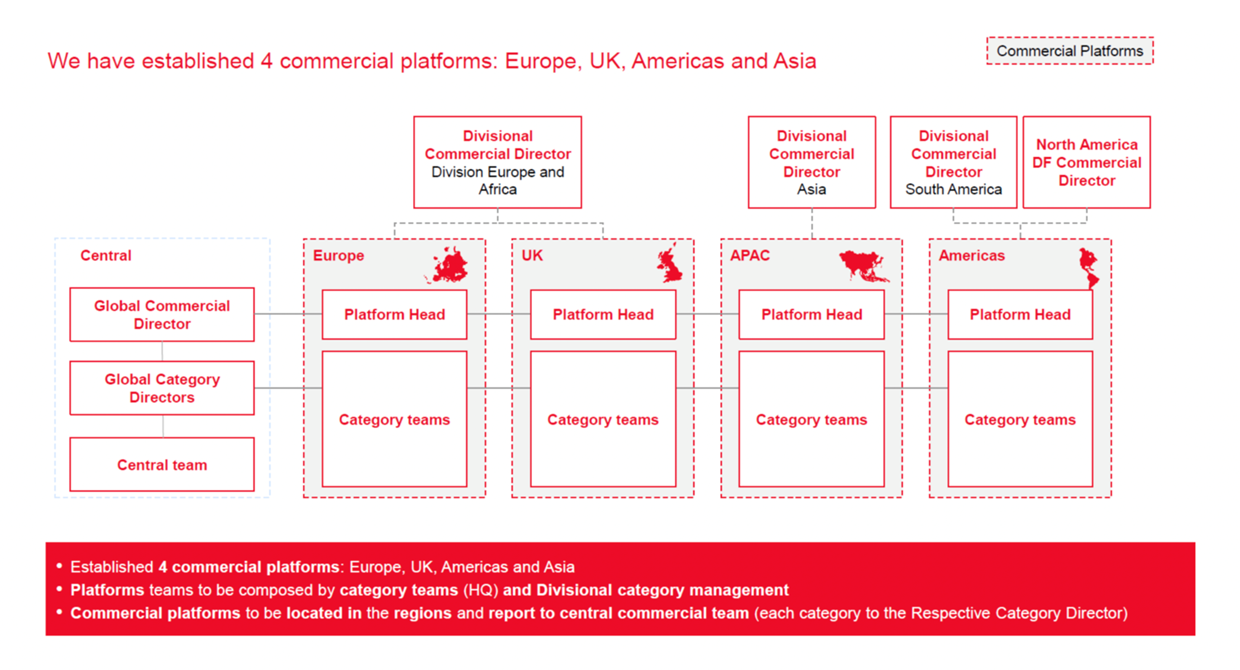
What is the rationale behind this newly created structure?
Basically it is about reducing complexity and increasing the speed of the decision-making process. The former structure, with a global commercial function, was a bit too far away from the front line – our stores. And whilst it worked and gave Dufry great benefits – for example, we could maximize advantages created because of the size of our company – the model could be improved to create a more efficient structure that enabled us to meet the specific needs of the countries more effectively. The strategy for the whole category and the negotiations with providers remain global, but the day-to-day operations are now closer to the business.
As you can see in the structural blueprint, each platform has representatives from each of the categories, whose role is to coordinate decisions between countries and global category owners. This position enables them to have a better understanding of each individual market, empowering them to make quicker, more on-the-spot decisions.
Couldn’t platforms be perceived as an additional layer in our organization, hence making things a bit more complicated?
That is not the idea behind the platforms. If you look at the new organizational structure, the divisional commercial teams are now being transferred to the platforms. So it is not adding another layer to the decision-making process, but simply changing where the decision is made.
And, yes, it is true that there is not a 100% geographical fit between divisions and platforms. However, the way platforms are structured matches the way our brand partners split the world and where products are distributed on a global basis.
How will the Commercial Platforms change the way you work with brand partners?
The platforms permit us to make more informed decisions. As I said previously, globalizing functions has benefits related to economies of scale and synergies. However, for the commercial function, particularly in today’s world, one size does not fit all. We need to get more up to speed when it comes to understanding customers, what they want, what they expect from us and what can surprise them (in a good way!). Having a better understanding of the dynamics of the market and what works in an operation (and what does not) enables us to be more proactive and puts us in a better position to work with our brand partners and to develop exclusive products and more innovative promotions. We must also listen to our brand partners.
Is travel retail still an interesting channel for our brand partners, or is online taking over?
The travel retail channel is definitely still interesting for brand partners! However, it is in our hands to protect it and to keep making it appealing. It will not come as news to anyone that most of our brand partners value our channel and use some of our locations as launch pads for their products. Some airport locations in particular are highly valued by our partners because of the profile of the passengers and the international exposure the brands receive at those locations.
Our big advantage is to be located where we are. And our main focus has to stay in attracting customers to our shops and making them shop with us. The availability of exclusive products, different formats or new launches and “firsts” is our real point of difference with respect to online retailers. But we cannot put all our eggs in this basket. What really makes the difference between online and any other retailer is service and experience, something the online world cannot (so far) offer to customers. This is where we have to focus our efforts. And also being willing to listen and learn from our customers. Understand what they want, how it works and react quickly.
You were recently appointed President of ETRC. In your opinion, what are the main challenges the industry will be facing in the medium term?
I am beginning my tenure as President at a time when many challenges confront our industry, namely Brexit, product labelling and ever-increasing demands for more consumer information, concerns about sustainability and the use of plastic, alongside other specific challenges in the tobacco, alcohol and confectionery categories. ETRC is a vital strategic organization that is essential to ensuring we meet these challenges head on and as a joint effort of the industry. In addition, the EU has undergone significant changes this year with a new parliament in place and a new commission taking office in November. With the support of its members, ETRC will need to engage with regulators and stakeholders at EU level to ensure the voice of duty-free and travel retail is heard on these issues of key importance to the industry during the next legislative session. Some issues may just have a European scope; others can very quickly spill over to other regions.
On the Brexit front, the role of ETRC is twofold. We support ETRC members in understanding the implications of the different post-Brexit scenarios on the one hand, while on the other hand we work with the EU and British parliaments to bring back duty-free to European passengers.
Product labelling is a bit more complex. Since 2011, there has been a significant increase in the regional and national product legislation governing what needs to be included on product labels (e.g. ingredients, nutritional facts, allergens, etc.). These laws aim to enable consumers to make more informed purchasing decisions. But they are designed for the domestic markets, and that creates significant barriers to trade – especially for the duty-free industry, which operates in multiple countries, with multiple languages.
ETRC advocates an electronic solution that benefits everyone. For consumers, this solution means being able to access all information in a more comprehensible (and legible) way, while for manufacturers it provides the possibility of reaching more markets and developing different and more appealing formats (confectionery, among the chief categories impacted, is one of the main options for gifting).
In a minute:
A meal: Always a good steak, especially if I am in a country with a good reputation for its meat. Having said that, I am also quite partial to a good risotto!
A book: Animal Farm (1945), by George Orwell. His analogy between the farm and the real world is still spot on. A city: London... what more can I say!
A city: London... what more can I say
A film: If…, a British drama from 1968 by Lindsay Anderson satirizing English public education.
A hobby: I have now exchanged sports for gardening. I still do not know which is more tiring!
A leader: As a civil leader, Margaret Thatcher. But I also admire Martin Johnson. He was England’s rugby team captain when we won the Six Nations and the World Cup in 2003.
By Jorge Muñiz

